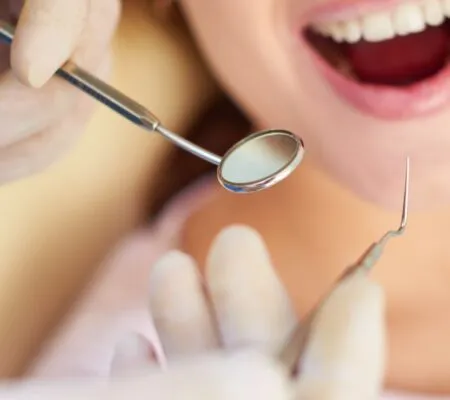Restorative Care
We develop individualized approaches to each case. If all you need is routine dental cleanings and yearly exams and x-rays, we have the right plan for you. We utilize all the known and approved treatments to prevent caries and periodontal disease. We also provide extensive education and nutritional counseling on how to modify your diet to help protect you from dental problems.
Composite Fillings
The chief advantage of composite fillings is their natural tooth color. Your dentist can blend the composite to match virtually any tooth shade.
Composite resins are environmentally safe and eliminate the possibility of mercury allergies, or having to dispose of mercury.
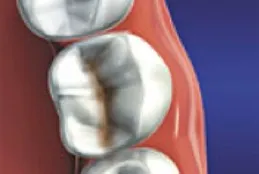
Decayed teeth require fillings to restore strength and health of natural teeth.
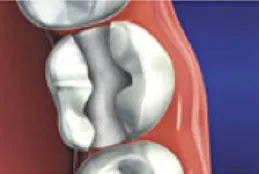
The decayed portion of the tooth is removed from the sound tooth structure.
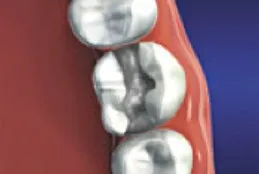
Filling materials are shaped to match the look and feel of natural teeth.
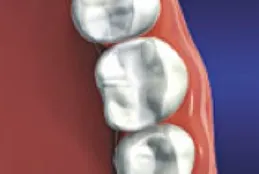
Today, many modern materials can be used to mimic the color and texture.
Veneers
Porcelain veneers are thin shells placed over stained, misshaped, damaged, or unattractive teeth. They can also close gaps between teeth and magically improve your smile. The thin layer of porcelain appears very natural due to the translucency of porcelain.
Veneers can be made from either porcelain or resin, with porcelain the more natural looking of the two. Typically porcelain veneers require that you have two appointments. Resin veneers can sometimes be placed in one visit. Since veneers are applied to your natural teeth, they must be fundamentally healthy to provide a strong foundation for the veneers.
Veneers represent the most highly “cosmetic” of dental procedures. Many times they are applied simply because the patient is unhappy with their current smile. The results can quite often be dramatic.
Crowns
Dental Crowns, when cemented in place, fully replace the visible portion of a tooth but rely on your original root structure for support. Crowns have often been referred to as “caps” because they form a cap over your tooth. They can be made of porcelain, gold, metal alloys, or a combination of materials.
The reasons you may need a crown include: restoring a tooth weakened by decay, holding together parts of a cracked tooth, covering misshaped teeth, holding a bridge in place, and when large fillings have weakened a tooth.
While waiting for your crown to be made, your dentist will fabricate an acrylic “temporary crown” on the tooth and secure it with temporary cement. When your permanent crown is ready, it will be cemented in place.
Occlusal (Night) Guard
Occlusal Guards, also called bite guards or night guards, are intended to reduce the effects of bruxism and/or grinding your teeth. Morning headaches and facial muscle soreness are some of the symptoms you may experience if you grind/brux your teeth. The occlusal guard is a custom-made hard plastic appliance that comfortably fits over your upper teeth. Fabricating the guard takes two appointments, one to take an impression of your teeth and a second visit to ensure a comfortable fit and make any necessary adjustments. The guard is made of a durable plastic that protects your natural teeth and dental restorations from harmful wear down and/or chipping of teeth.
Most people only brux or grind their teeth at night and need only to wear the guard while sleeping. However, all patients are different, and we recommend you wear the protective guard as instructed. At no time should you experience soreness in muscles or joints around your face or ears, regardless of whether or not you are wearing the guard. After each use, you should clean the guard with a soft toothbrush and toothpaste to remove any plaque that may have accumulated and store in a dry place.
If your teeth suffer from a serious malocclusion, further visits may be needed to equilibrate your bite and assure that your teeth fit properly.

